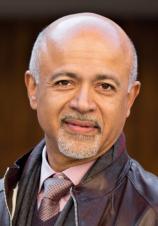Reading Group Guide
Discussion Questions
The Tennis Partner

1. Do you think David might have been a happier and healthier person had he chosen a different profession instead of medicine? Is there something about medicine that attracts addiction-prone individuals or that causes people to turn to drugs?
2. After returning from the Talbott-Marsh clinic, David proudly tells Verghese he has at last found "true recovery". A short time later he is back on drugs and more desperate than ever. What happened? Why does he relapse so quickly and tragically?
3. In a sense, this is a book about foreigners adjusting to a new country. How does Verghese uses foreignness and alienation to heighten the intensity of his narrative? Talk about David's story as a kind of dark underside of the American dream of renewal.
4. "Tennis was so much more than a game," Verghese writes at one point -- and yet, as he acknowledges at the end, it is also just a game -- a simple, even slightly absurd ritual "of the yellow ball." How does Verghese manage to tie together so many of the book's complex strands through tennis?
5. Do you think Verghese is being honest -- with himself and with us -- about the sexual element in his attraction to David? Do you think this is basically a healthy relationship? Or do you feel Verghese is unaware of how deeply involved and dependent he is on David?
6. David stands at a juncture between two opposite paths: an orderly middle class existence in medicine with a wife and a "dream house"; and a hell of drug addiction, shame, poverty, disease and death. Does David choose hell in part because the respectable middle class existence is so hollow, so spiritually vacant? What other alternative could there be for someone like David? What about for Verghese himself?
7. Do you really believe that drug addiction is a "disease" comparable to diabetes or cancer, or do you think that talking about it in this way is harmful because it somehow absolves the addict of responsibility? Which view does Verghese endorse?
8. Talk about the statement that "David is responsible for David" and how it plays out in the two men's relationship in the final pages of the book. How can a true friend deny responsibility for his friend in crisis? Did Verghese act responsibly in calling the police or did he betray his friend's trust?
The Tennis Partner
- Publication Date: August 17, 2012
- Hardcover: 400 pages
- Publisher: Harper
- ISBN-10: 0060174056
- ISBN-13: 9780060174057







